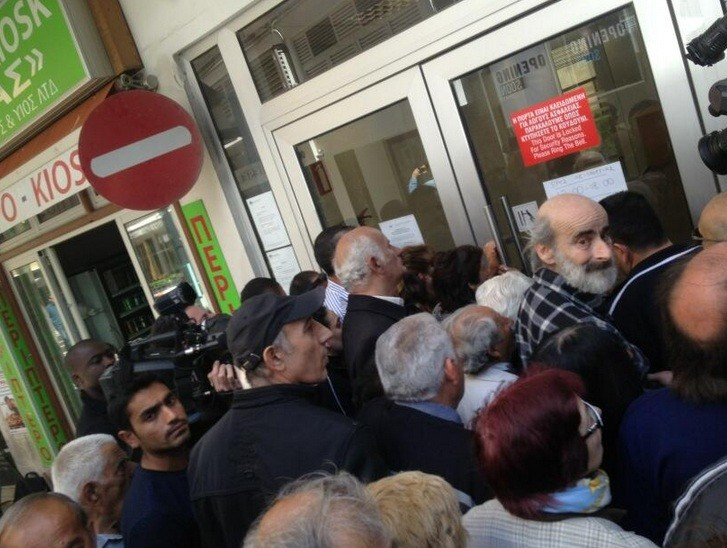Depositor’s Guide: Cyprus Capital Controls To Prevent Bank-Run

While Cyprus reopened its banks today, the country has still imposed strict capital controls, in order to prevent a run on deposits in connection with the country's bailout negotiations.
Following a two-week closure, Cyprus also announced that the Cyprus Stock Exchange will also remain closed until after the Easter Weekend.
Cyprus has to raise €5.8bn (£4.9bn / $7.4bn) by Monday in order to qualify for the €10bn European Union, European Central Bank and the International Monetary Fund bailout package or face being kicked out of the single currency.
As Cyprus became the first country ever to impose measure to control capital, IBTimes UK has decided to outline what it means to Cypriot depositors.
Cash Withdrawals and Deposits
After initially spooking the Cypriot investors earlier this month with taxation to all deposits, reports that politicians in Cyprus are thrashing out a one-off levy on savers, in order to secure a European bailout, will be determined on Sunday.
While the President of Cyprus Nicos Anastasiades is yet to confirm the details, the details are reported to include a 20 percent tax on savers with deposits over €100,000 euros at the country's largest bank, the Bank of Cyprus.
Meanwhile, other details are reported to be a 4 percent tax on deposits, held at other banks, over €100,000 euros would be levied at other banks.
In the meantime, depositors are only allowed to withdraw up to €300 per day from any bank, unless they have withdrawn less than that amount from the previous day.
Cashing cheques have also been temporarily barred unless they were issued by a bank in another country.
Transactions and Transfers
In the meantime, non-cash payments or money transfers are banned unless they are related to a number of conditions.
These conditions include commercial transactions, payroll, living expenses and tuition fees.
If commercials transactions are less than €5,000, there are no restrictions, but payments above this amount and up to €200,000 will be subject to a 24-hour decision making process, in order to determine whether the liquidity of the bank would be able to incur such a withdrawal.
Transfers for paying employees will also still be allowed but relevant documents would have to be presented in order to prove the money is being used to pay staff.
Transactions on credit or debit cards are also capped at €5,000 euros per month.
Exemptions and Closing Loopholes
While Cyprus has put strict capital controls in place, it has also thwarted various other means of deposits and withdrawals in order to prevent circumvention of the new rules.
Capital controls are in place for all accounts, payments and money transfers in any currency and if a depositor has placed money in an account for an agreed period of time, they do not have the right to withdraw the money early, unless it is to pay off a loan to the same bank.
Banks are also prohibited from making non-cash payments or money transfers that may bypass the newly imposed capital controls.
While the exemption list is short, capital controls will not apply to a number of expat related cash.
For instance, any new money deposited from abroad after 27 March will be exempt from capital controls, while cash withdrawals via debit or credit card from an account in another country will also be unscathed by the new rules.
© Copyright IBTimes 2025. All rights reserved.






















